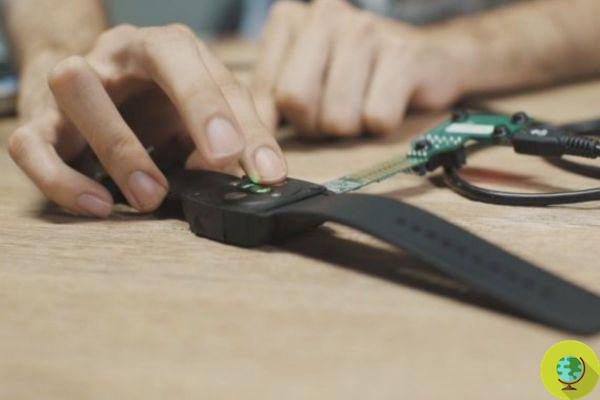A smart bracelet that can monitor the heart 24 hours a day can predict a possible stroke episode and save lives.
Don't store avocado like this: it's dangerousA smart bracelet will be able to constantly monitor the heart, detect any atrial fibrillation in a non-invasive way and thus prevent a stroke in real time.
It is an innovative tool designed by a group of Spanish ICT entrepreneurs and cardiologists in collaboration with the La Fe Hospital in Valencia and created to prevent a stroke with daily and constant monitoring.
La atrial fibrillation it is one of the arrhythmias that causes many cases of stroke and it is a pathology that often turns out to be subtle: many people realize they suffer from it only when they have already had a stroke. But the start-up Rithmi has developed a bracelet that warns the patient when an atrial fibrillation is in progress.
Every year, more than 110 thousand people suffer from this disease, of which 50% remain alive with serious consequences or do not survive at all.
Behind this solution are a Valencian entrepreneur, Óscar Lozano, and his father, a specialist in the cardiovascular field: together, after years of research, they have developed a algorithm that monitors a person 24 hours a day and warns you when you may have had an episode of atrial fibrillation.
Currently undergoing European certification, the smart bracelet would have a '94% reliability. Once the patient has been informed of possible atrial fibrillation, the same bracelet performs an EKG and sends the results to the doctor.
“In this way we reduce the false positives a lot because we double check and inform the attending physician at the same time”, explains the CEO and co-founder of the startup, Óscar Lozano.
How Rithmi will work

RITHMI technology is a recording system based on photoplethysmography (PPG), a technique that measures through a sensor the intensity of the light reflected from the surface of red blood cells and from the skin and indicates the functioning of the blood flow and the volume of blood in each area. In this way, the bracelet receives a pulse wave from the heart, which allows you to identify the heartbeat rate and detect arrhythmias during any activity.
The data obtained is sent by the wearable to a mobile application that stores the data and creates alerts in case of abnormal values.
The device is currently awaiting certification to be marketed, but tests are continuing on some patients at the Valencia hospital.
Read also:
Consuming too many eggs increases the risk of heart attacks and strokes. The new confirmation
Zero calorie drinks: two a day are enough to increase the risk of stroke. The new study
Predict strokes and heart attacks by analyzing the eyes thanks to the new Google algorithm


























